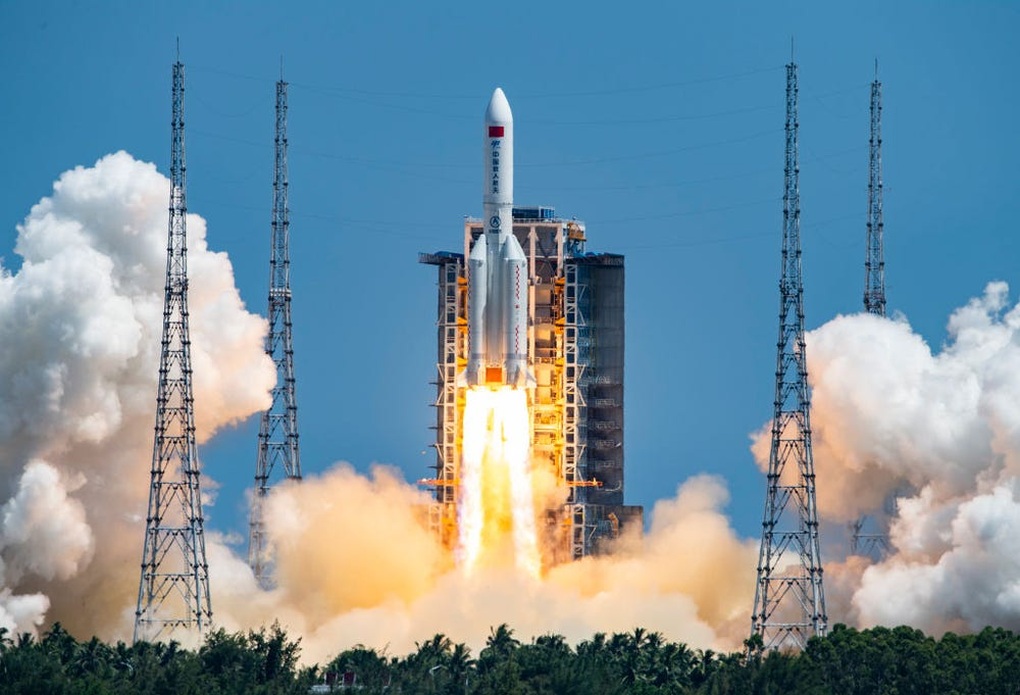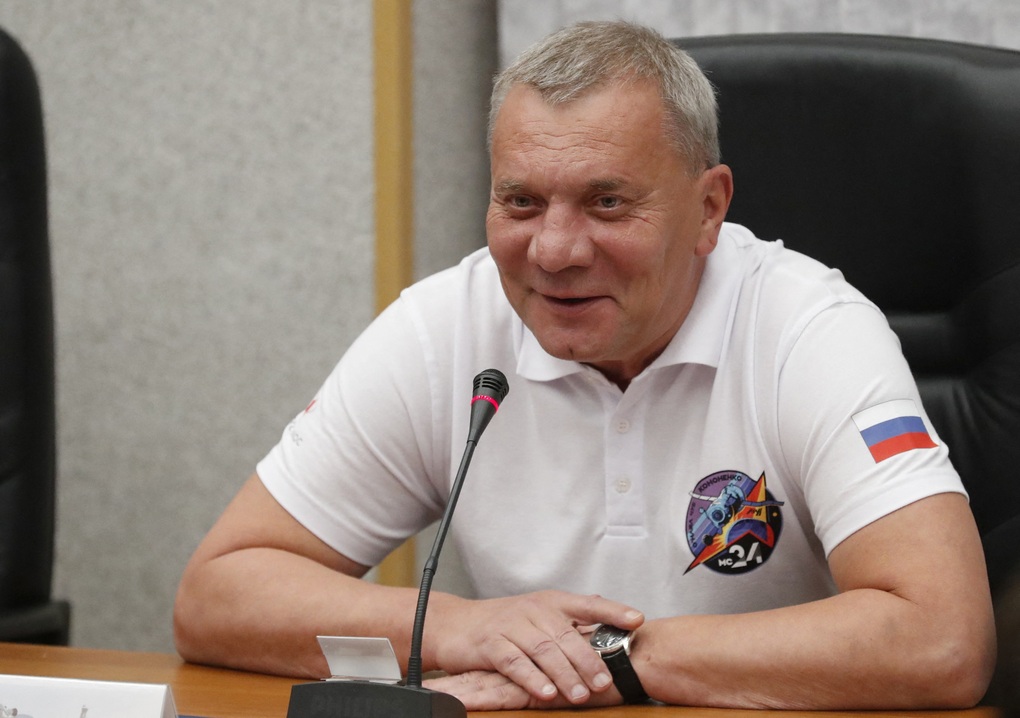HOT America is worried that China may try to shoot down satellites from the Moon
Senior US general warns China may plan to attack US satellites from the Moon. Defense One reported that General Anthony Mastalir, commander of the US Space Force in the Indo-Pacific, mentioned China's Moon exploration program at a conference on March 18. Mr. Mastalir warned that China may plan to attack US satellites from the Moon.
Defense One reported that General Anthony Mastalir, commander of the US Space Force in the Indo-Pacific, mentioned China's Moon exploration program at a conference on March 18. Mr. Mastalir warned that China may plan to attack US satellites from the Moon.
The US general said that he remains most focused on potential conflict on Earth, but that China's Moon strategy needs urgent review by the US.
The US has thousands of satellites in orbit, used for many civil and military purposes. Washington also has satellites used to track ballistic missile threats.
US officials have repeatedly warned about China's military plans in space. General Stephen Whiting, head of the US Space Command, said at a congressional hearing in February that China's military capabilities in space are developing at a "breakneck pace".
China later rejected the claims, accusing the US of making the statements "as an excuse to expand its own military power".
In 2019, a Chinese probe called Chang'e 4 successfully landed in the mysterious area of the dark side of the Moon. China became the first country to explore a previously unknown area of the Moon, aiming to discover more about the history and formation of Earth's only natural satellite.
China then took soil and rock samples from the Moon back to Earth. Beijing announced that it plans to send people to the Moon before 2030 and establish a scientific research center on the planet.
Early last year, Director of the US Aeronautics and Space Administration (NASA) Bill Nelson talked about a scenario in which he thought China could claim sovereignty over some areas on the Moon.
The reality is that we are in a space race. And we better watch out so that they (China) do not reach some areas on the Moon under the guise of scientific research. It's very likely they'll say leave, we're already here. This is our territory if we reach those areas," the US official warned.
Over the past few years, the China National Space Administration (CNSA) has also successfully sent an orbiter and a rover to Mars, and launched its own space station into Earth orbit. .
"China in the past decade has achieved great success and progress in its space program," Mr. Nelson admitted at the time. However, he still expressed confidence that NASA has enough ability to win the space race and complete the set goal of sending a crew to the Moon by 2025.
A BOLD PLAN Russia and China plan to place a nuclear power plant on the Moon
Gas and China are considering placing a nuclear power plant on the Moon between 2033 and 2035, a Russian official said. Director of the Russian Federal Space Agency (Roscosmos) Yury Borisov said on March 5 that Russian and Chinese officials are "seriously considering" the joint project of placing a nuclear power plant on the Moon after about 10 years from now. "We are seriously considering a project, somewhere around 2033-2035, to transport and install a nuclear power plant on the Moon together with Chinese partners," Borisov said.
Director of the Russian Federal Space Agency (Roscosmos) Yury Borisov said on March 5 that Russian and Chinese officials are "seriously considering" the joint project of placing a nuclear power plant on the Moon after about 10 years from now. "We are seriously considering a project, somewhere around 2033-2035, to transport and install a nuclear power plant on the Moon together with Chinese partners," Borisov said.
According to Borisov, Russia and China have cooperated on the Moon program and Moscow can contribute its expertise in "nuclear space energy". He said solar panels would not be able to provide enough electricity for future settlements on the Moon, while nuclear energy could.
Mr. Borisov also mentioned Russia's plan to build a nuclear-powered cargo spacecraft. He said all technical questions related to the project have been resolved apart from finding a solution to cool the nuclear reactor.
"We are researching a space tug. This giant vehicle can, thanks to its nuclear reactor and high-power turbine, transport large cargo from one orbit to another, collecting fragments space debris and many other applications," he said.
Russian officials have previously spoken out about ambitious plans to one day mine the Moon, but Russia's space program has encountered a series of setbacks in recent years. Meanwhile, China last month said it aims to send its first astronaut to the moon before 2030.








![[LIVE] Engage2Earn: Veterans Affairs Labor repairs](https://cdn.bulbapp.io/frontend/images/1cbacfad-83d7-45aa-8b66-bde121dd44af/1)














